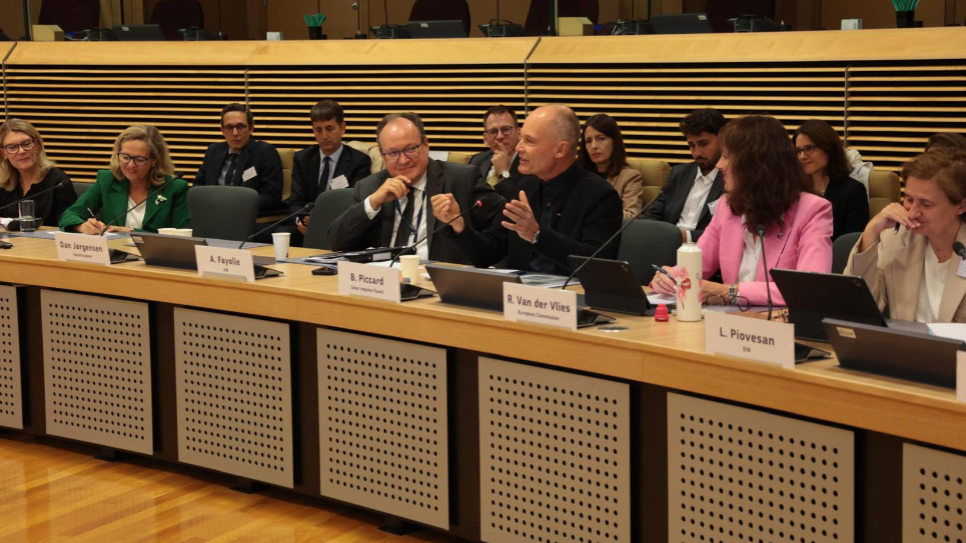News - September 25, 2025
Doing more with less: efficiency, the key to European sovereignty and competitiveness


Written by Bertrand Piccard
Every winter, Europe shivers at the mercy of foreign suppliers. Every summer, it suffocates under the weight of energy that is all the more costly because it is wasted in inefficient infrastructure. We are like a giant plugged into someone else's power supply. We cannot call ourselves sovereign if we have to beg others to keep the lights on.
While the US invokes freedom and sovereignty by relying on its abundance of fossil fuels, Europe depends on Russian gas, Middle Eastern oil and Chinese solar panels.
This dependence – on anyone – is a strategic weakness. Following the war in Ukraine, Europe has sought to diversify its energy sources. But replacing one dependency with another is pointless. True autonomy will not come from importing LNG from Qatar instead of Russia, or tripling fossil fuel imports from the United States to please its president. It will come from reducing European energy consumption and using it more intelligently.
We are still using obsolete systems from the 20th century to solve 21st-century problems. Our infrastructure, technologies and economic models were designed at a time when energy was cheap, long before climate and energy crises changed the game. Today, we transport goods using systems that ignore real-time data, we live in poorly insulated buildings and we drive combustion engine vehicles that waste three-quarters of their fuel.
Not only is this unsustainable, it is also unnecessary and costly, as there is another way: energy efficiency, the key to reigniting Europe's power, both in our sockets and in our minds. According to the International Energy Agency, efficiency can account for more than 40% of emissions reductions by 2040, while also creating jobs, lowering costs and reducing dependence. The solutions are there, European and available; we must deploy them with courage.
Efficiency goes far beyond insulation or changing light bulbs: it can transform our industries, our cities and our consumption patterns. Concrete examples abound: a Norwegian airline saved £10 million in one year thanks to fuel optimisation software; the town of Poissy has reduced its air conditioning costs by more than €200,000 per year thanks to smart blinds in schools.
However, progress remains uneven. European funds offer a lifeline, but bureaucracy and short-term mentality too often slow them down.
Curiously, there is political reluctance towards efficiency, which is wrongly associated with austerity, a factor in economic decline. Whereas austerity does less with less, efficiency does better with less – a choice of progress, competitiveness and sovereignty.
Furthermore, energy efficiency is socially just. It reduces household energy bills, protects vulnerable communities from price shocks and reduces the health effects of pollution. It is, in every sense of the word, a transfer of power from foreign autocracies to European citizens.
Europe has long prided itself on its leadership in climate policy. But leadership requires action, not aspirations. The continent must set binding and ambitious efficiency targets, enforce new building codes, accelerate the adoption of clean technologies and support local governments in implementing changes on the ground.
Because the question is not whether Europe can afford to be efficient. The real question is whether Europe can afford not to be.
Published first by Les Echos, Le Soir, EFE Verde and La Repubblica.

Written by Bertrand Piccard on September 25, 2025
